This is a post about the ordinary side of life on an island/living on a boat. It’s not all beaches, warm blue water and parties. Some folks think we are on an extended vacation. This has been so much more than a vacation. We aren’t just passing through, doing all touristy things and then moving on or returning to our normal life in a week or two. True, 1) we are not working, 2) we are relaxing, 3) we are in a warm climate, 4) we are seeing and experiencing the sights; BUT this does not feel like a typical vacation. We are living on our boat, day after day, week after week, and month after month. We do the normal daily chores that must be done at home, such as repairs, cooking and cleaning, laundry, shopping for groceries, taking care of financial business, and so on. Besides the snorkeling, lobstering, conching, collecting sea glass, happy hours on boats, concerts, art shows, what do we do????
Our mornings always begin with coffee. It takes some time to boil the water and use the drip pot (yeah, sometimes I do miss my Keurig coffee maker…..) Breakfast varies from cereal and yogurt to eggs, french toast or pancakes. Depends on the weather and my mood. We eat breakfast in our cockpit, watching the sounds and sights of people and boats in the harbor. Those of who spend the winter here on our boats are known as harbor rats. There is even an unofficial, but recognized, group of veteran Hope Town cruisers who call themselves the “harbor rats, ” complete with t-shirts.
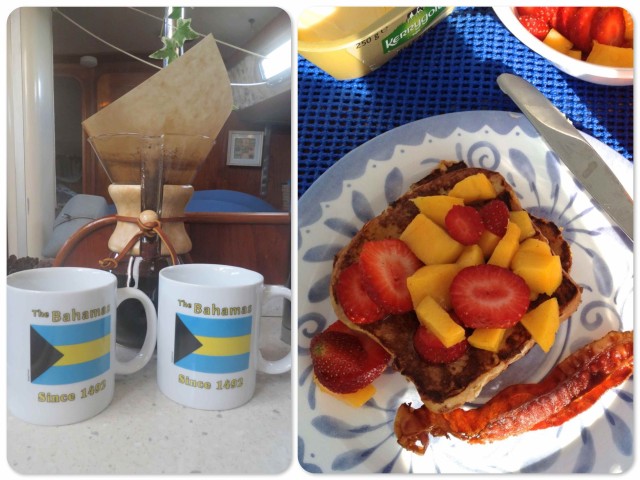
Each morning at 8:15 am the “Abaco Cruisers Net” is broadcast on VHF radio Channel 68. This net was started about 20 years ago by Bob and Patty Toler and is completely staffed by cruisers who volunteer to “anchor.” The purpose of the “net” is for communication and “to promote safety, friendship, and message handling.” We hear about the weather, passage and sea conditions (always critical when you live on a boat), community events, invitations to events at island restaurants and island services. The net ends each morning with an “open mike” time for announcing new arrivals and departures. It’s almost like having our own local morning tv, without the visual, of course. Will, on Antares, is one of the anchors. He has a perfect radio voice, so easy to listen to while you drink your coffee.
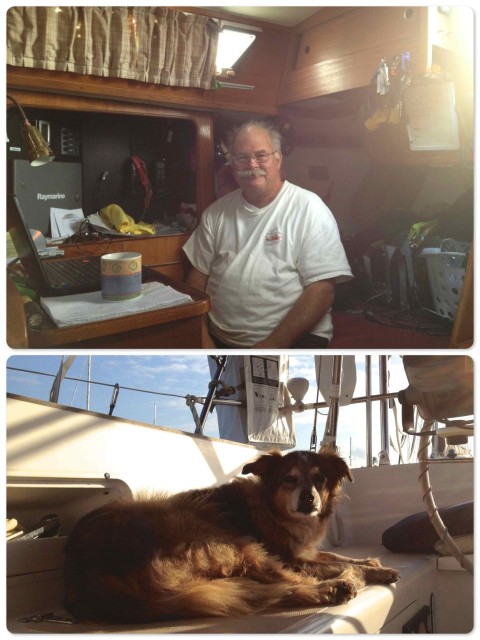
Will and his wife, Muffin, invited me to be a guest “weather person” a few times. It was great fun!
Audio files of the Cruisers Net are available on the Barometer Bob website for a few days after each broadcast. Here is an audio file of my debut as a “weather girl,” if you are so inclined to listen and still housebound due to the ice and snow up north.(Go ahead, Mom and Dad, you are probably the only people who will!)
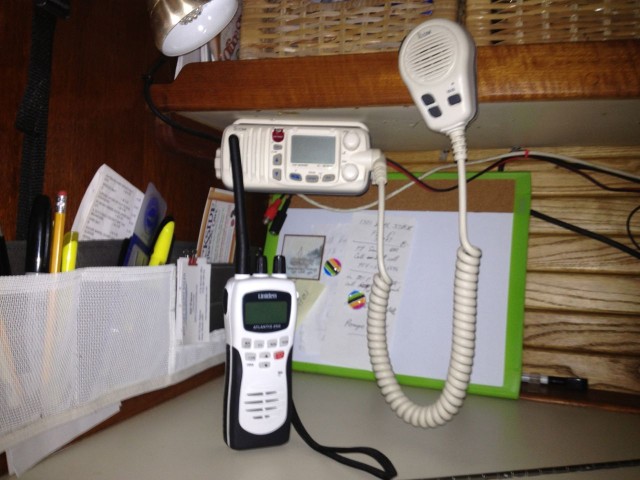
Most communication among boat people and cottage folks (eg. dirt dwellers) is done with the VHF (or by shouting.) Our call signs are either our boat’s name or the cottage name. 16 is the main hailing channel – “Cutting Class, Cutting Class… Kindred Spirit.” Once the party you are calling acknowledges that they have heard you, you switch to a different channel by saying “up one” or “down one,” or “six eight” (meaning “68”). It all reminds me of the party phone line we had when I was a little girl. (You young folks have no idea what that was like!) When someone switches channels, the rest of us do too just for amusement, curiosity, or plain nosiness.
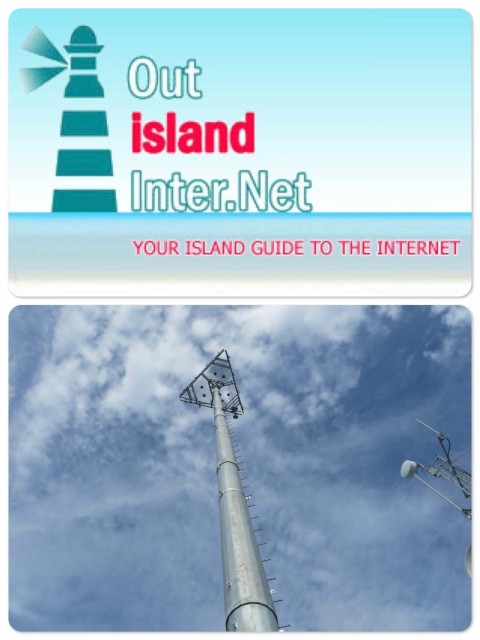
~ The BaTelCo cell phone tower. We never did get a Bahamian cell phone and have survived without one.
The VHF is critical for cruisers, but what about internet access? We signed up for a 3-months of OII – “Out Island Internet,” As they say on their website, “For the cruising yachtsman, we have our OII Internet Roaming Packages available at most of Abaco’s anchorages and marinas. They can roam from one picturesque isle to another in the Abaco Chain and stay connected with the same account and never leave their vessel. We are constantly adding new WiFi Hotspots!” Unquote. The internet here leaves a bit to be desired, but you soon become grateful just for a connection, regardless of the speed, or lack of speed. It is amazing how much we all need that lifeline, especially now, to stay in touch with our friends and family, as well as for information, news, managing finances, and many other aspects of 21st century living.
Transportation is another aspect of cruising and island life that differs from our land life back home. The importance of dinghies cannot be underestimated. If the “big” boat is our home, our dinghies are our cars. The dinghy takes us everywhere – to snorkeling, to the beach, to visit other boats, to visit homes on other islands, grocery shopping, laundry duties, and to town.
For transportation needs, The Albury Ferry service is the water taxi between between the islands, from here to Marsh Harbor and then another one that loops between Hope Town, Man-O-War and Great Guana Cay. We have never used the ferry service ($17 each one-way) but we see them and dodge them as they come in and out of the harbor. The “Donnie” boats, as they are called, are numbered with Roman numerals.
Bikes are another way to get around the island on land. We borrowed another cruisers’ folding bikes and rode all the way to the southern end of Elbow Cay.
Here in Hope Town, the trash is collected on Mondays, Wednesdays, and Fridays, which is really nice. Trash and garbage can be a problem when you live on a boat. Many other islands make you pay to bring your trash to shore or don’t provide anything at all. You learn to condense your trash into as small a volume as possible, crushing cans, and cutting up plastic into small pieces. Here in the harbor, people take turns collecting bags of trash from other boats and bringing it in to the trash truck.
Laundry is another chore, just like at home. It has to be done, but we sure don’t do it as often as we do at home in Connecticut. There is no washer and dryer on board this little ship so dirty clothes, sheets and towels must be bundled up and carried (by dinghy, of course) to the marina’s laundry. It is not cheap – $5 to wash and $5 to dry a load. In any harbor, you will see laundry hanging over the life lines, the boom, or in the flybridge to dry.
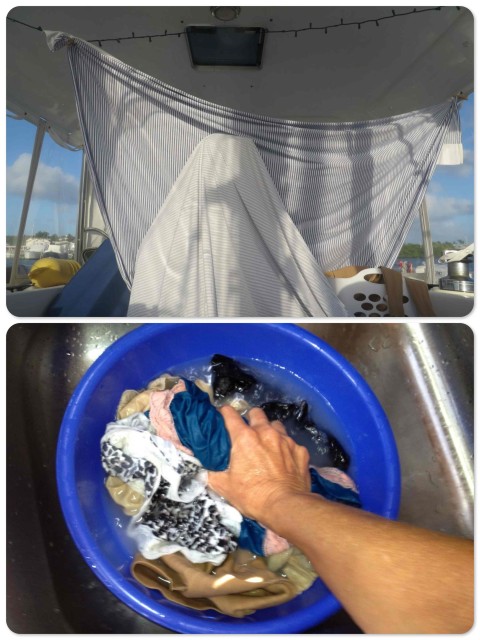
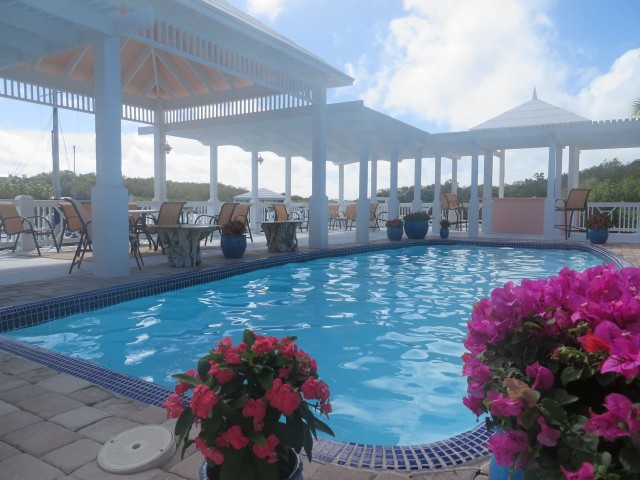
Grocery shopping is often a challenge. When it comes to fresh produce, you quickly adjust to two things – 1) you eat and cook whatever is available, and 2) if you really want it or need it, you don’t look at the price. Harborview, a local Hope Town grocery store, has undergone a minor transformation during our stay. With new refrigeration and freezer units, it now seems to have a better variety and more fresh produce.
Deliveries come on the barge, with an engine that can be heard rumbling through the harbor no matter where you are. It is strange looking and strange sounding.
For big provisioning, it has been worth a trip to Maxwells in Marsh Harbor. We take the big boat (not the dinghy) and stay overnight. Maxwells is a good walk from the dock but, wow, you can almost find everything you need. Almost. We provisioned there twice during our time in the Abacos.
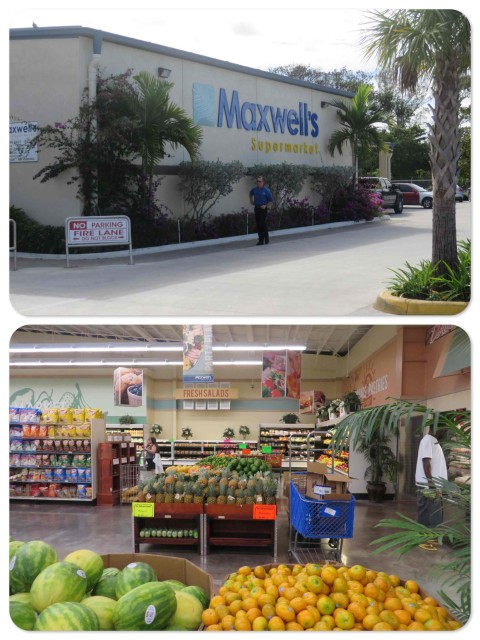
On Friday’s the fishing boat, Down Deep, comes to the dock with fresh fish, lobsters, and conch salad. We bought delicious grouper for dinner.
Government or municipal services are a little different down here in the islands. The First Caribbean International Bank is only open on Tuesdays from 10:00 am until 2:00 pm so you have to plan ahead if you need to do any banking around here. I hear that it is quite an event “when the bank comes.” The “bank” arrives with an armed police guard. (I find this a little bit amusing because Hope Town has been one of the safest places I have ever been.) Although we never needed to use the bank, I do wish we had stopped by on a Tuesday jus to see this.
The Library in Hope Town is a treasure for its casual and relaxed feeling. It is manned by volunteers and filled with donated books. You don’t need a library card – you just write your name on a sheet in the 3-ring binder and record the books you borrow, crossing them out when you return them. I borrowed a novel to read (no library card necessary), but have been unable to return it. For weeks, whenever I had the book with me, the library was closed. I have a back-up plan, just in case.
There is a post office housed on the second floor of the government building with other services, the Police Station and the Commissioners Office. The Post Office is open from 9:30 am until 4:00 pm and seemed to be the only “active” place in the building. I mailed two post cards for 50 cents each. Don’t expect to receive one from me. I hear it takes a very long time. One was sent to a friend’s nephew for a school project and the other one I mailed to our home in Connecticut just to see how long it will really take. I’m curious.
Boats have many systems, just like a house or car, and maintenance takes a lot of Al’s time. I suspect he actually enjoys most of it. I stay out of the engine room and I don’t mess with the mechanics of any other system onboard. But when it comes to cleaning, I do help.
I suppose you could say that we have “pink” and “blue” jobs, as boringly traditional as that may sound. My real contribution to this ship is in the galley. I don’t allow anyone else in it (galleys are one-person spaces) and I have my own systems for organizing the storage and the refrigeration. Cooking on the boat has been fun, from breakfast to appetizers to dinners. I don’t always remember to take a picture, but you can certainly see that we are not starving down here!
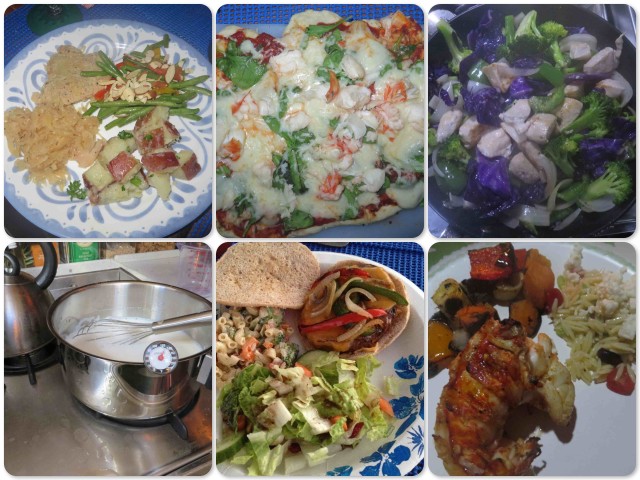
We actually get a lot of exercise to offset all that food we eat (and beer and wine we drink….). Living on a boat means you are up and down the ladders and hatchways all day long. We swim, snorkel, or walk almost every day, too. There is also a yoga group on Mondays, Wednesday, and Fridays; but I have to admit I have not been there in a while.
It is now 10:05 pm which is waaaaaaay past a cruiser’s normal bedtime (closer to 8:30 or 9:00 pm). Time to say goodnight! Zzzzzzzzzz
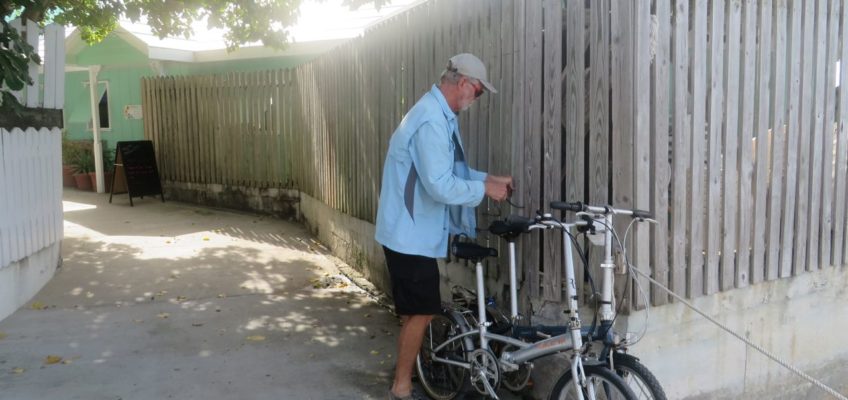
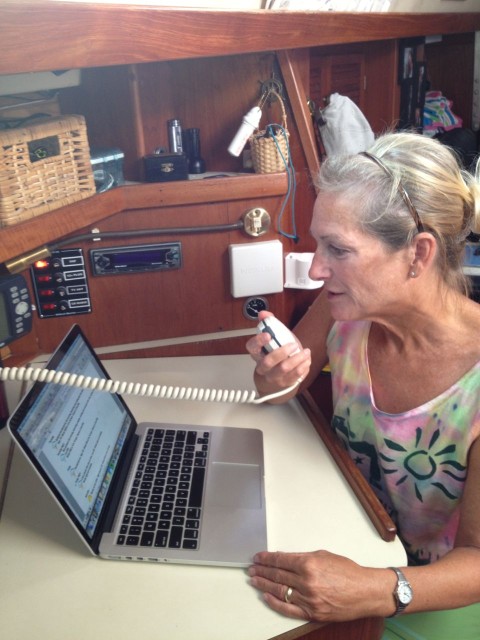
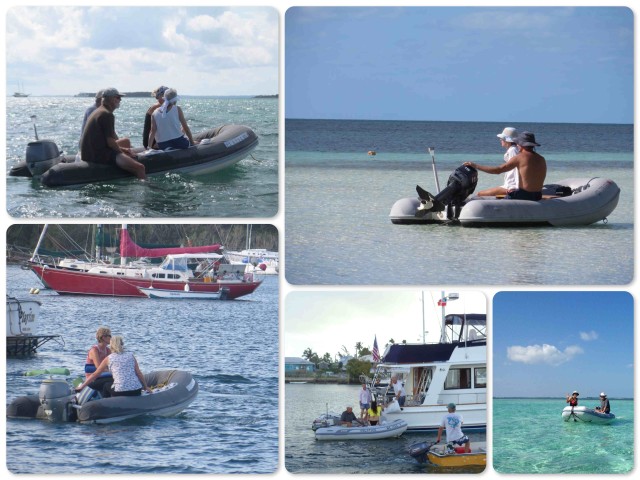
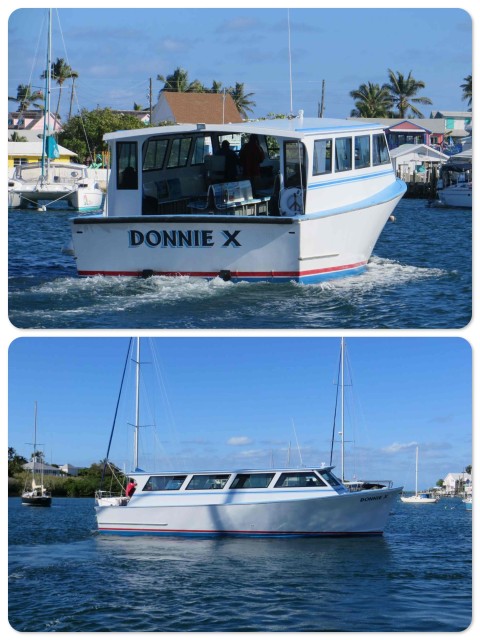
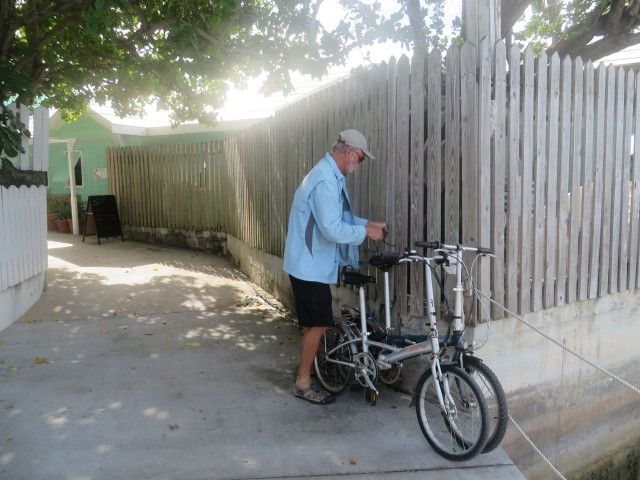
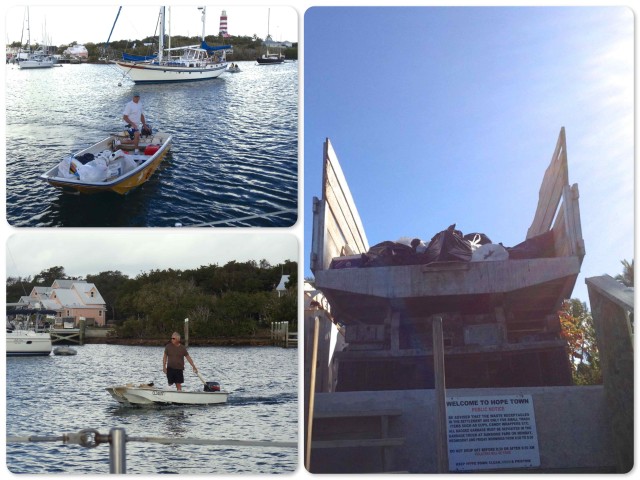
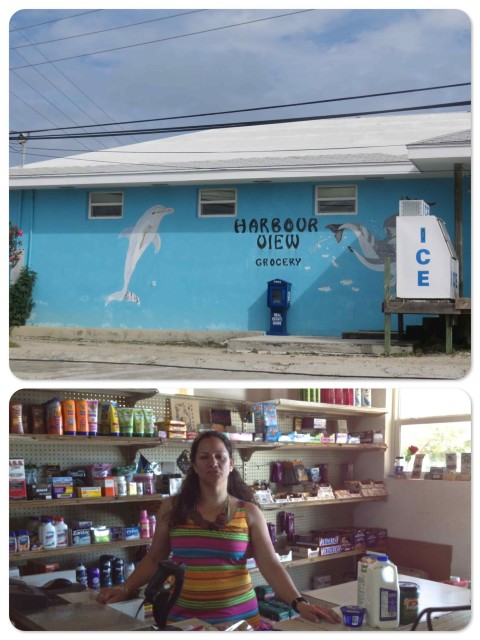
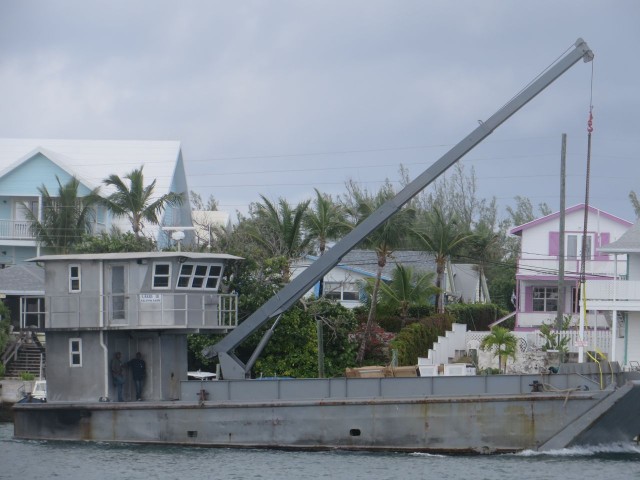
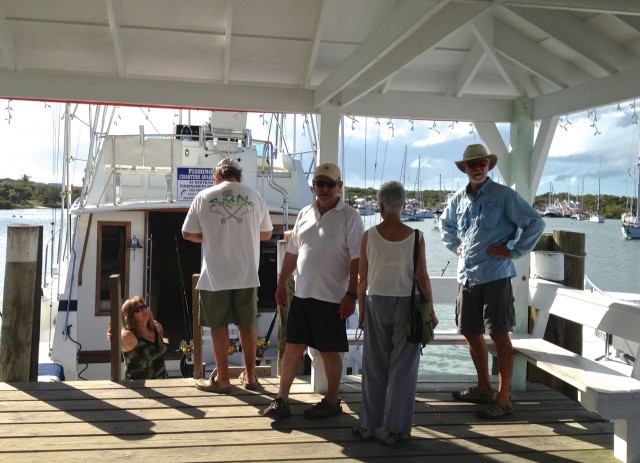
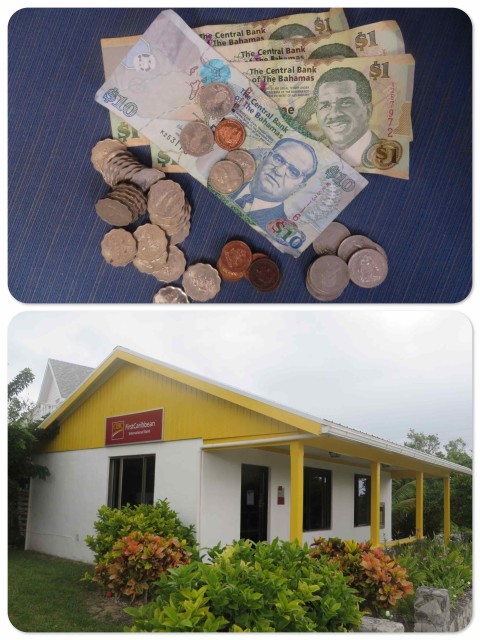
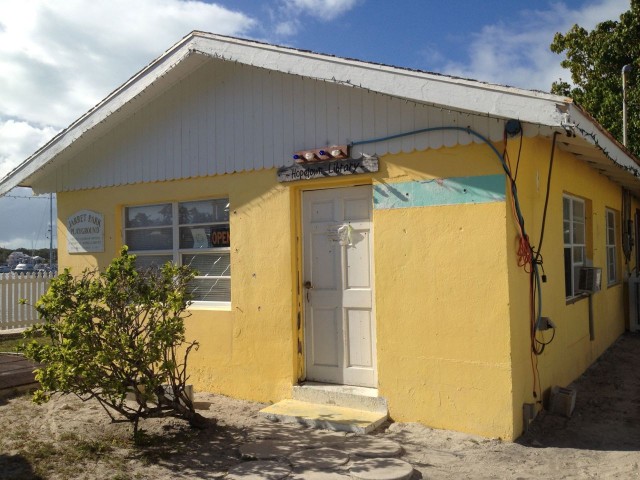
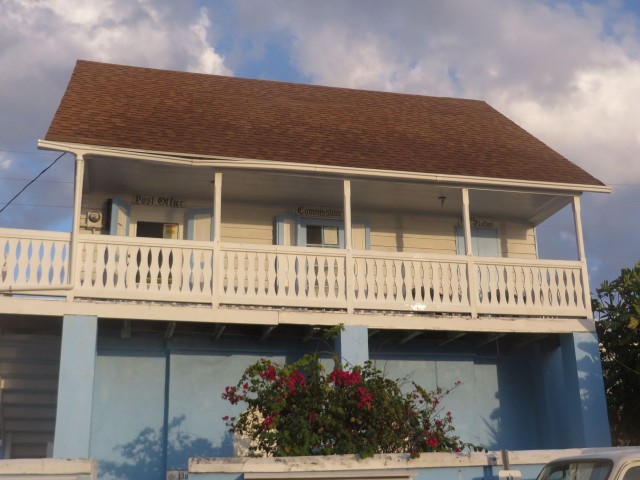
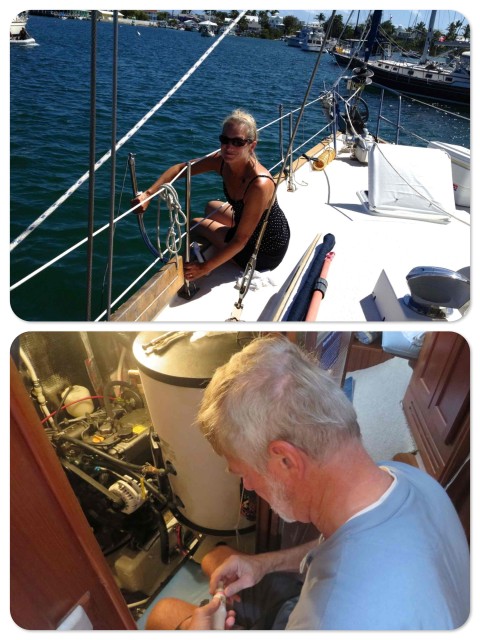
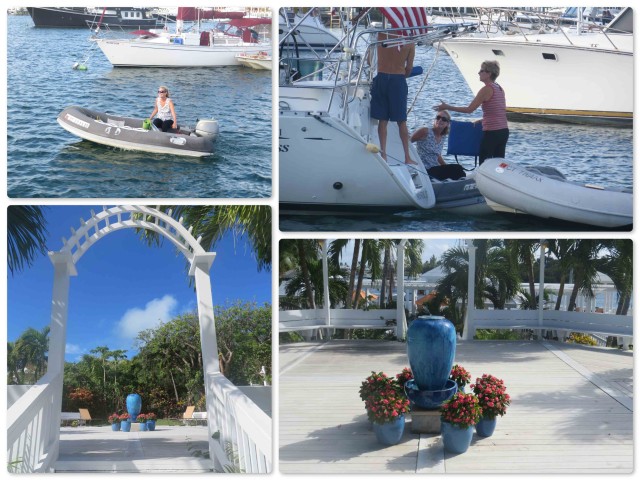
Reflecting on Life Afloat | Kindred Spirit
[…] trip to the Bahamas, I wrote a blog post about living in Hope Town harbor on Elbow Cay – Island Routines. As I look back at the photos from this second trip, I see I can add a few more “life […]